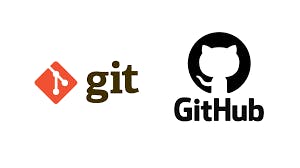version control System
Library
frameworks
CI/CD
Building Tools
Package Managers
Let's Talk about the following Tools:

1. version control System
A version control system (VCS) is a software tool that helps developers manage and track changes to their source code. It allows multiple developers to collaborate on the same codebase and provides a history of all changes, allowing them to roll back to previous versions if necessary. Some popular VCS are Git, Mercurial, Subversion (SVN), and Perforce. These systems provide a way to track changes, collaborate with other team members, and ensure that the codebase is stable and reliable. They also facilitate the workflows like branching, merging, and pull requests which helps to manage the code more effectively.
If want to learn about Git-GitHub I will provide the following Tutorials
1 Git and Github Tutorial by Free Code Camp
2 Git and GitHub Tutorial by CodewithHarry
2. Library
A library is a collection of pre-written code that can be used to perform common tasks or functions in a program. These libraries can include things like data structures, algorithms, and utility functions that can be used to reduce the amount of code that needs to be written for a particular project. They can also help to improve the efficiency, reliability, and maintainability of a program by providing tested, reusable code. Libraries can be specific to a particular programming language or can be cross-platform and used in multiple languages. Examples of popular libraries include the Standard Template Library (STL) in C++, the Python Standard Library, and the Java Standard Library.
Java scripts have following Library
jQuery: jQuery is a widely used JavaScript library that simplifies client-side scripting and DOM manipulation, making it easier to work with HTML documents.
React js: React is a JavaScript library for building user interfaces, it uses a virtual DOM and follows a component-based architecture. \
3. Frameworks
A framework in software development is a set of pre-written codes and guidelines that provide a structure for building software applications. Frameworks provide a set of tools and conventions for developers to follow to create an application that adheres to certain architecture, design patterns, and best practices. Frameworks are designed to make development more efficient, by providing reusable code and reducing the amount of code that needs to be written. They also help ensure that the code is consistent and maintainable. Frameworks can be specific to a particular programming language or can be cross-platform and used in multiple languages
For example, CSS has so many frameworks
Bootstrap - a popular open-source framework developed by Twitter that provides a set of CSS and JavaScript components for creating responsive, mobile-first web pages.
Tailwind CSS - a utility-first CSS framework for rapidly building custom designs.
Java scripts Frameworks
AngularJS - a framework for building web applications, it uses a component-based architecture, two-way data binding, and offers powerful features like dependency injection.
Express.js - a minimal and flexible Node.js web application framework that provides a robust set of features for web and mobile applications
Nest.js - a framework for building efficient, scalable Node.js server-side applications.
Vue.js - a progressive JavaScript framework for building user interfaces, it's similar to React and Angular.
4. CI/CD
CI/CD stands for Continuous Integration and Continuous Deployment. It is a software development practice that involves continuously integrating code changes into a shared repository, and continuously deploying those changes to an environment where they can be tested and eventually released to production.
Continuous Integration (CI) refers to the practice of automatically building and testing code changes whenever they are committed to the shared repository. This helps to catch and resolve any integration issues early in the development process.
Continuous Deployment (CD) refers to the practice of automatically deploying code changes to a test or production environment once they have passed the build and test stages. This allows for faster feedback and enables teams to release new features and bug fixes more frequently.
5. Building Tools
Building tools are software programs that automate the process of compiling, linking, and packaging software code into executable files or libraries. These tools help to streamline the development process and make it easier to create consistent, high-quality software.
Here is a list of popular building tools:
Make - a command-line tool for building software on Unix-like systems, it uses a Makefile to specify the build process.
Gradle - an open-source build automation tool that is designed to be flexible and extensible, it is commonly used for building Java and Android applications.
Apache Maven - a build automation tool for Java projects, it follows the conventions over configuration approach and provides a consistent project structure.
6. Package Managers
A package manager is a software tool that is used to manage and distribute software packages or libraries. These packages contain pre-written code that can be easily integrated into a software project to add new functionality or features.
Here is a list of popular package managers:
npm (Node Package Manager) - the default package manager for the Node.js JavaScript runtime, it is used to manage and distribute JavaScript packages.
yarn - a package manager for JavaScript that is similar to npm, it is designed to be faster and more reliable.
pip (Python Package Index) - the default package manager for the Python programming language, it is used to manage and distribute Python packages.
Composer - a package manager for the PHP programming language, it is used to manage and distribute PHP libraries and dependencies.
RubyGems - a package manager for the Ruby programming language, it is used to manage and distribute Ruby libraries and gems.
